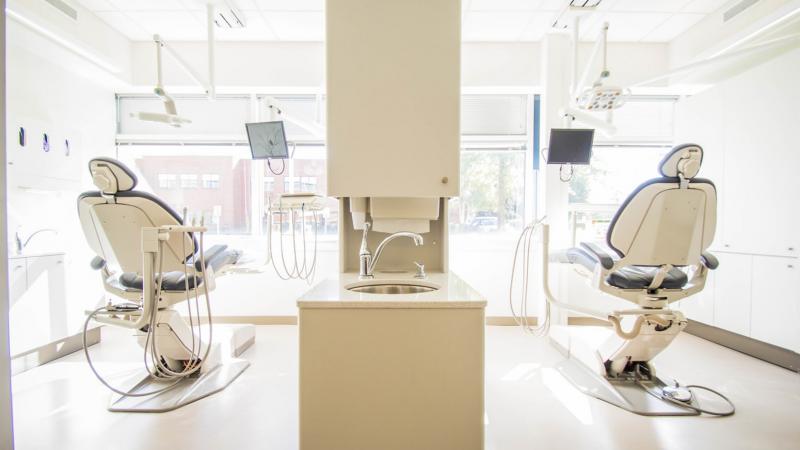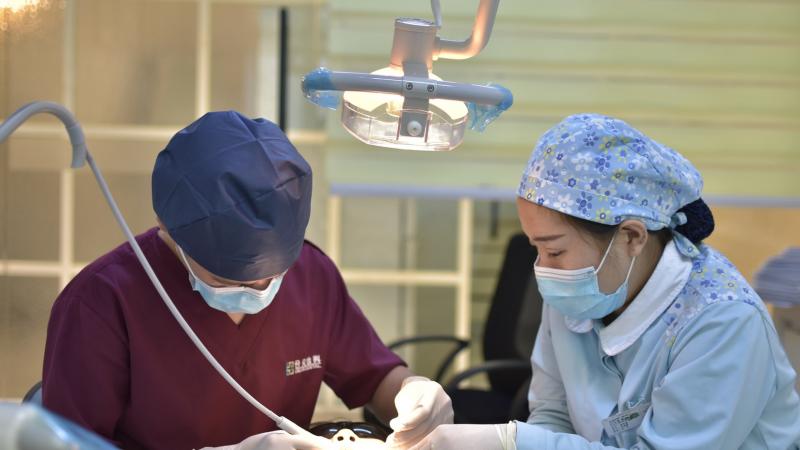Things to Consider Before and After a Cavitation Surgery

A healthy body is something that everyone should have! And it's surprising that not many people consider dental health to be a part of a robust body system. Teeth infections can result in other health issues as well. The hidden viral infections found in tooth sockets can give rise to several illness symptoms. The symptoms of cavitations include heart problems, chronic fatigue, migraines, digestive issues and many more.
Regardless of the ailment, we all want our symptoms to get healed and not worse! Hence, the objective of cavitation surgery is to do away with the periodontal membrane and balance the blood flow in a given region. Also removing that organism that resides in these regions is also essential. Today, not many patients are aware of cavitation surgery and the way one should prepare for it.
Understanding cavitation surgery
Cavitation has two separate meaning. First, it refers to a cavity infection in the bone. And regarding the operation, it suggests a dental surgical process. Hence, a cavitation surgery works towards removing the affected bone from a cavity, for a healthy, new bone to grow back.
Look for an expert practitioner for your surgery
If you want success out of your cavitation surgery, search for an ace practitioner. You have to search for ace dentists and oral surgeons who are confident about this surgery and have an unbeaten track record for the same. You can search based on your location. So, if you New York you can research on Cavitation Surgery New York City hospitals or clinics and browse through the same.
Selecting the correct cavitation surgery practitioner
To be able to choose the best cavitation surgery practitioner is a challenge. However, when you are searching for one, make sure you check on the following points. It will help you to make the correct decisions. Hence, the practitioner should be able to:
1. Take away the periodontal membrane
Usually, the periodontal membrane is left behind, so that our body heals the bone close to it. It ultimately creates a hole, where yeast, virus and other bacteria hide. Not obliterating this membrane results in cavitation infections. Ensure that your dentist or surgeon has mastered the art of periodontal membrane removal.
2. Carry out PRF (Platelet Rich Fibrin) or any other similar process
PRF facilitates bone generation and healing soon after the surgery. Right after the surgery, even before the operated area gets stitched, the surgeon will add in PRF. It gets sourced from the patient's blood before the surgery. Patients' who have experienced cavitation surgery have always benefited from PRF addition.
3. Make use of ozone at the time of the process
All types of dental yeast, virus, and bacteria are unhealthy. It can affect the entire body gradually. Ozone has proved to be the ideal security against them. Hence, it's advisable that you reach out for a practitioner for a cavitation surgery who makes use of ozone at the time of surgery.
4. Provide ozone injection after the surgery is over
It’s always better to have an ozone injection after a cavitation surgery. It helps in fast healing and tackles any remaining procedure. The dentist or surgeon can inject a small fraction of ozone after the site stitching gets finished. And then, ozone injections on a weekly basis can be continued for about a month. If there's need, then it can be used even more frequently. The practitioner should also have the idea about drilling taps for ozone injections. It is helpful if there’s further need for ozone after bone formation.
5. Maintain ample caution so as not to force open the jaw
Dentists know that after the surgery the jaw is delicate. Hence, it should never be forced open. It can result in Trismus. Patients will always want to open their jaw. That's something prevalent after a surgery. And here the dentist needs to maintain caution and ensure that the jaw opening happens without any stress. Furthermore, Trismus causes immense main and takes time to heal completely.

Things to take care after the surgery
Cavitation surgery also brings with it post-surgery care. It helps the patient to heal completely from the root. It includes the following components.
1. Detox support
Cavities and cavitations bring with them infections of all kinds. There’s also the use of heavy metals which give off toxins. Hence, the patients generally feel right for some time. After that when the toxins keep coming up from the surgery site, it results in further infections. Hence, detox support is essential once the surgery is over. For this, the patient can count on castor oil packs, a sugar-free diet, ionic foot baths, coffee enemas and many more. However, other detox processes like IV therapies, chelation, and colonics also worked wonders.
2. A good dental care routine is essential
Other than tongue scrapping and teeth brushing, there are a couple of other things you can do to retain the benefits of the surgery. You can sanitize the toothbrush using hydrogen peroxide or UV sanitizer. It will help to halt the ongoing microbial re-exposures stemming from the toothbrush. You may also rinse using ozonized water, essential oils or salt water. Oil pulling too is a good choice.
3. Opt-in for an excellent anti-microbial assistance
Cavitations result in various dangerous crawlies. It comprises of parasites, bacteria, and viruses. The best way to deal with this is to boost your immune system. Additionally, you will also require antimicrobial assistance. The lab culture outcomes and autonomic response tests that get done on the affected tissue might reveal the microbes that are present. It will let you know the desired line of treatment.
Above all, it is also essential to seek emotional support. The western medicine field has come to believe that what happens in the body is an offshoot of something that has taken place in our emotional sphere. And this has led doctors, and practitioners come up with energy medicine and holistic dentistry as well. Every surgery result in a delicate recovery zone. With emotional support and proper comprehensive care, you can leverage the best benefits of cavitation surgery. You can get help from resources and tools such as dental apps. You have to know how it works and get connected to an expert dentist.
More Resources: Dentist Directory and Hospital Directory
More to Read:
Previous Posts:





